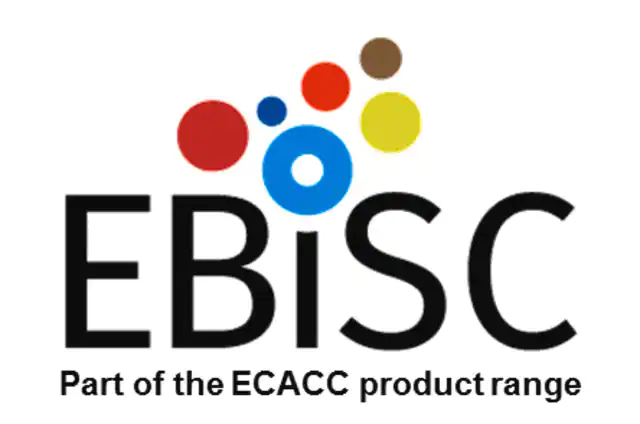您的位置:首页 > 产品中心 > BIONi010-C-10
产品性质
| biological source【生物来源】 | human |
| reprogramming method【重编程方法】 | episomal |
| description【描述】 | age (N/A) |
| manufacturer/tradename | EBiSC™ |
| gender【性别】 | male |
| growth mode【生长模式】 | adherent (pluripotent) |
| technique(s) | cell culture | stem cell: suitable |
| relevant disease(s)【相关疾病】 | none |
| shipped in【运输】 | dry ice |
| storage temp.【储存温度】 | −196℃ |
基本信息
| General description【一般描述】 | Induced pluripotent stem cells (iPSCs) are adult cells that have been reprogrammed to an embryonic stem cell–like state. The cells can replicate indefinitely or, under controlled conditions, can be differentiated into any other cell type such as nerve, heart or liver cells. Medical researchers are able to use iPS cells to test how different patients might respond to new drugs or to analyse how genetic diseases develop. The EBiSC stem cell bank is a collection of human iPS cells available to academic and commercial researchers for use in disease modelling and other forms of stem cell research. The initial collection has been generated from a wide range of donors representing specific disease backgrounds and healthy controls. EBiSC has established many routine procedures for collecting, expanding and characterizing human iPS cell lines. The stem cell bank includes iPSC cell lines derived from neurodegenerative diseases (Alzheimer′s Disease, Parkinson′s Disease, Dementia, Motor Neuron Disease (ALS) - and Huntington′s Disease), eye and heart diseases, and lines from healthy control donors for age and sex matching. |
| Cell Line Origin【细胞系来源】 | Depositor Bioneer |
| Cell Line Description【细胞系描述】 | Derivation Primary cell type: - Reprogramming method Vector type: Non-integrating Vector: Episomal Is the reprogramming vector detectable: No Xeno free conditions: no Derived under gmp: no Available as clinical grade: no Characterization Microbiology / Virus Screening HIV 1: - HIV 2: - Hepatitis B: - Hepatitis C: - Mycoplasma: Negative Genotyping Karyotyping Passage number: P11 Cell line karyotype: 46, XY Karyotyping method: G-Banding Image / Result Genetic Modification Disease/phenotype related modifications Disease: MODY Type of modification: Isogenic Gene: HNF1A Chromosome location: 12q24.31 Nucleotide sequence HGSV: NM_000545.6:c.(c.872dup) Protein sequence HGSV: NP_000536.5:p.(P291fsinsC) Zygosity: Heterozygous Target locus modification: Mutated Description: An additional cytocine has been introduced by CRISPR-Cas9 into a poly-C tract in Exon 4 of HNF1A resulting in a out of frame mutation. It is likely that the other allele has also been targeted, since western blotting did not show any HNF1A protein in Pancreatic progenitor cells compared to the control line BIONi010-C. |
| Linkage【联系】 |
Note: EAUA and CLIP must be completed before order fulfillment |
| Subculture Routine【传代培养常规】 | Surface coating: Matrigel®/Geltrex® Passage method: Enzyme-free cell dissociation / EDTA O2 concentration: 20% CO2 concentration: 5% Culture medium: mTeSR® 1 Passage Number banked (pre-EBiSC): 12 No. Vials banked (pre-EBiSC): 4 |
| Legal Information【法律信息】 | EBiSC is a trademark of Fraunhofer-Gesellschaft GELTREX is a registered trademark of Life Technologies Corporation Matrigel is a registered trademark of Corning, Inc. mTeSR is a registered trademark of WiCell Research Institute, Inc. |
安全信息
| Storage Class Code【储存分类代码】 | 6.2 - Infectious substances |
| WGK | WGK 3 |





